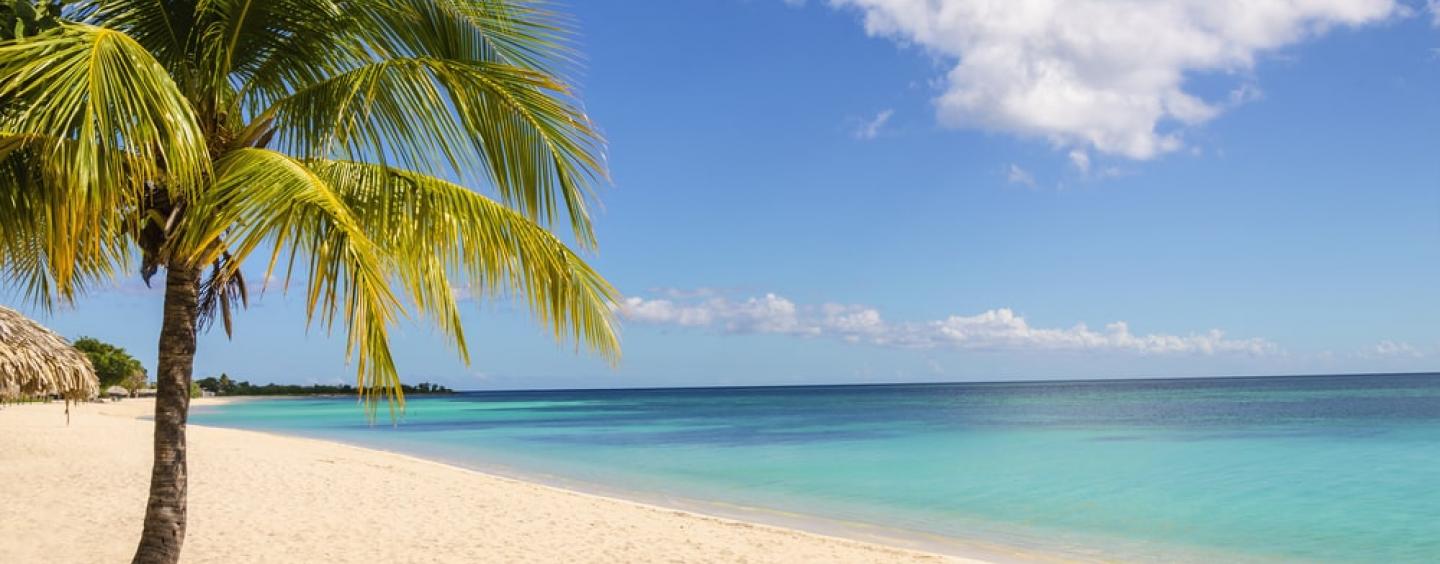How to open a bank account in the Cayman Islands
A Caribbean paradise with a wealthy - and tanned - population with an attractive combination of quality of life, proximity to the United States, flexible business laws and gorgeous turquoise waters, no wonder it has attracted expats by the dozens of thousands ( a lot considering its largest city is about 27 thousand people). Still, there are more companies than people in the country, which explains a lot about its business laws. Its capital, George Town situated in the island of Grand Cayman, is one of the internationally famous centers for offshore banking and investments.
If you are thinking of moving to this British overseas territory, or if you need a bank account for your business, here is our guide on how to open a bank account in the Cayman Islands.
Documents needed to open a bank account in the Cayman Islands
It is super easy to open a bank account in the Cayman Islands and all you need are some basic documents. English is the main language, fyi.
- Passport
- Proof of residence such as a utility bill
You may be required to provide notarized copies of documentation and additional requirements such as bank statements, reference letter from your current bank, tax returns, supporting document for source of funds, and so on. If you came to the Cayman Islands for work, then a letter of employment from your employer will be required stating your position, salary, and date of effectivity of your employment.
Can I open a bank account in the Cayman Islands as a non-resident?
Yes it is possible to open an account as a non-resident but it is likely that it will be required that you provide income statements, tax returns and a few other documents, not to mention you will be restricted on how your accounts are used and funds going in may be limited as well. It is best to contact the individual bank to find out details either via email or starting a conversation via phone with one of their relationship managers.
Is it illegal to have a bank account in the Cayman Islands?
Having an offshore bank account in the Cayman Islands is not illegal, but if your intent is to hide money there, that’s another story.
When we talk about the Cayman Islands, two things usually come to mind: a tropical vacation paradise and a premier haven for investments and private and offshore banking. When it comes to banking secrecy, the Caymans have earned the reputation for having the most stringent in the world. Owing to their highly sophisticated trust laws, they provide a high level of privacy, protection, and flexibility to their clients. It is considered to be “one of the most transparent and professional of the tax neutral jurisdictions.
Setting an offshore account in the Cayman Islands (or in any other foreign country for that matter) is legal unless you are planning tax evasion. Note that offshore banking is also not tax exempt. Make sure you understand the regulations as there's only a slight difference between tax avoidance and tax evasion.
In compliance with the requirements of the Foreign Account Tax Compliance Act or FATCA, banks around the globe are to report balances and all the transactions of American citizens to the IRS for accounts with more than $50,000 USD in assets. Failure to do so can lead to penalty. The FATCA is a law of the United States of America that went into effect in 2010.
What is the difference between an offshore account and an investment account?
FAQs
Best banks in the Cayman Islands
If you need a bank account for your business of any kind, either registered in the islands or abroad, or if you need an account as a worker there, there is a huge selection of retail banks specializing in this business. Initial fees are low - surprisingly - and you get all sorts of perks. There won’t be any free accounts in the Caymans. Here are the top banks in the Cayman Islands:
- RBC Royal Bank: With a series of special offers for families, regular sales on loans, this could be the bank you get a good deal if you arrive at the right time. They are a full service bank offering debit and credit cards, multiple offers depending on the stage of your life and a series of solutions for professionals. They are located all over the Caribbean and you can find their branches and ATMs here.
- First Caribbean International Bank: This is one of the best options for banking in the area with nearly 60 branches offering a true one-stop shop banking solution in the Caribbean with financial backing by Barclays and CIBC Toronto in Canada. Besides the full retail offer, they have corporate banking, wealth management, credit cards, treasury sales and trading and investment banking. Here are their locations all over the Caribbean.
- Fidelity: with a plan to help you achieve financial freedom (their words) they are a present in the Bahamas and in the Cayman Islands. They have a full service line including insurance for individuals, contractors and businesses, banks cards of all kinds, pensions, mortgages, cheques, the lot. Find their locations here and their ATMs here.
- Scotiabank: with plenty of offers for day to day banking, credit cards, borrowing, investing, insurance and premium banking, this is one of the most complete banks of the whole of the Caribbean and also with a full stack of services aimed at small businesses and corporate and commercial accounts. Here are their branches and ATMs.
Other banks in the Cayman worth noting are Cayman National Bank (CNB) and HSBC Bank (Cayman) Limited.
Of the dozens of banks and financial institutions located in the Caymans, most are catering to the wealthy. Regardless of that, it is surprising that there are plenty of banks offering personal accounts with all sorts of offers including cashback.
The virtual bank account alternative
Open a bank account in the Cayman islands online
Imagine you need to transfer 10 thousand euros to India on a regular basis. Did you know that every time you ask your bank to do a transfer, it is keeping as much as 1000 euros as currency conversion charges alone? This is true: you will only get 9000 euros worth of rupees back in India, even though they say only a small SWIFT transaction is charged.
With B2B Pay, you get 9900 euros worth of rupees back in India. Plus you get your own virtual bank account with a European IBAN you can use to send and receive money within Europe and send money anywhere in the world in 33 currencies.
Page content
About the author

Disclaimer
This publication is provided for general information purposes and does not constitute legal, tax, or other professional advice from B2B Trade Payment Services AB or its affiliates, and it is not intended as a substitute for obtaining advice from a financial advisor or any other professional.
How to open a bank account in Europe
We have comprehensive guides on opening bank accounts across multiple European countries. These resources also explain how a virtual bank account with Narvi Payments can be a smarter alternative for international transfers, offering better exchange rates and greater convenience.
-
 How to open a bank account in Andorra
How to open a bank account in Andorra -
 How to open a bank account in Austria
How to open a bank account in Austria -
 How to open a bank account in Bulgaria
How to open a bank account in Bulgaria -
 How to open a bank account in Croatia
How to open a bank account in Croatia -
 How to open a bank account in Czech Republic
How to open a bank account in Czech Republic -
 How to open a bank account in Cyprus
How to open a bank account in Cyprus -
 How to open a bank account in Denmark
How to open a bank account in Denmark -
 How to open a bank account in Estonia
How to open a bank account in Estonia -
 How to open a bank account in Finland
How to open a bank account in Finland -
 How to open a bank account in France
How to open a bank account in France -
 How to open a bank account in Germany
How to open a bank account in Germany -
 How to open a bank account in Greece
How to open a bank account in Greece -
 How to open a bank account in Hungary
How to open a bank account in Hungary -
 How to open a bank account in Ireland
How to open a bank account in Ireland -
 How to open a bank account in Italy
How to open a bank account in Italy -
 How to open a bank account in Latvia
How to open a bank account in Latvia -
 How to open a bank account in Liechtenstein
How to open a bank account in Liechtenstein
-
 How to open a bank account in Lithuania
How to open a bank account in Lithuania -
 How to open a bank account in Luxembourg
How to open a bank account in Luxembourg -
 How to open a bank account in Malta
How to open a bank account in Malta -
 How to open a bank account in Monaco
How to open a bank account in Monaco -
 How to open a bank account in the Netherlands
How to open a bank account in the Netherlands -
 How to open a bank account in Norway
How to open a bank account in Norway -
 How to open a bank account in Poland
How to open a bank account in Poland -
 How to open a bank account in Portugal
How to open a bank account in Portugal -
 How to open a bank account in Romania
How to open a bank account in Romania -
 How to open a bank account in San Marino
How to open a bank account in San Marino -
 How to open a bank account in Slovakia
How to open a bank account in Slovakia -
 How to open a bank account in Slovenia
How to open a bank account in Slovenia -
 How to open a bank account in Spain
How to open a bank account in Spain -
 How to open a bank account in Sweden
How to open a bank account in Sweden -
 How to open a bank account in Switzerland
How to open a bank account in Switzerland -
 How to open a bank account in the UK
How to open a bank account in the UK
